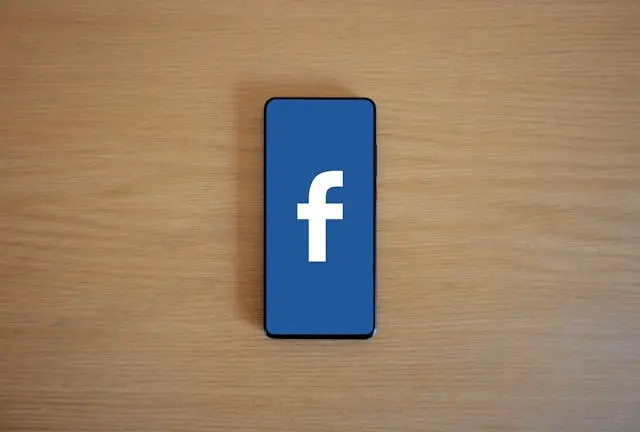APPLE AND EPIC’S WAR RAGES ON RELENTLESSLY

THE CLASH BETWEEN TWO TECH TITANS ESCALATES IN 2025
In what has become one of the most closely watched tech legal battles of the decade, Apple and Epic Games continue to wage war over App Store policies, developer rights, and the future of mobile app ecosystems. As of May 2025, this five-year-long standoff shows no signs of slowing, with massive financial and legal consequences for both companies—and potentially the entire app development world.
THE LATEST FALLOUT: APPLE REJECTS FORTNITE AGAIN
On April 28, 2025, Epic Games resubmitted Fortnite to the iOS App Store for approval, armed with a court victory and confident that Apple would comply. But just 120 hours later, Apple pulled the plug yet again. This marks the second withdrawal of Fortnite from iOS this year alone, despite U.S. court orders backing Epic.
“Apple has blocked our Fortnite submission so we cannot release it on the U.S. App Store or Epic Games Store for iOS in the EU,” read a sharp statement from Epic on May 2, 2025. The company called on Judge Yvonne Gonzalez Rogers to intervene directly and compel Apple to comply with the court’s previous ruling.
A LEGAL BATTLE THAT BEGAN IN 2020

The clash began in August 2020, when Epic Games introduced a direct payment system in Fortnite, bypassing Apple’s mandatory 30% in-app purchase fee. Apple swiftly removed Fortnite from the App Store. Epic responded with a lawsuit, claiming Apple’s practices violated antitrust laws.
By September 2021, Judge Gonzalez Rogers ruled that Apple’s “anti-steering” policies—blocking developers from directing users to outside payment systems—were illegal under California law. However, the court did not label Apple a monopoly under federal antitrust statutes, a partial win for Apple.
APPLE ACCUSED OF DISREGARDING COURT ORDERS
Fast forward to April 2025, and the tide seems to be turning. In a scathing decision, Judge Rogers accused Apple of willfully defying her 2021 injunction. She found that Apple made cosmetic adjustments to allow external links, only to impose a new 27% fee on purchases made through those links—essentially maintaining the status quo.
In her latest filing, Judge Rogers wrote:
“Apple, despite knowing its obligations, thwarted the injunction’s goals and continued its anticompetitive conduct solely to maintain its revenue stream.”
She added that Apple’s leadership had acted in bad faith, even misleading the court during a 2024 evidentiary hearing.
“Remarkably, Apple believed this Court would not see through its obvious cover-up,” the ruling stated.
APPLE FIGHTS BACK IN APPEALS COURT
Despite the courtroom loss, Apple has not backed down. In a filing with the Ninth Circuit Court of Appeals on May 10, 2025, the company argued that the district court’s ruling infringes on its right to control its own platform and protect the user experience.
Apple claimed the restrictions would cost it billions annually, stating:
“These constraints unfairly penalize Apple for non-compliance with a state-law injunction that is itself invalid.”
Apple insists that the pending appellate decision justifies its refusal to approve Fortnite, even after Epic’s resubmission.
APP STORE REVENUE: THE BILLION-DOLLAR BATTLEFIELD
What’s really at stake? Money—lots of it. According to Appfigures’ 2025 market report, Apple earned $10.1 billion in App Store fees last year alone. Of the $33.68 billion generated in gross revenue by developers, only $23.57 billion made it to their accounts. The rest went into Apple’s coffers—$6.27 billion from apps and $3.82 billion from games.
Apple’s Services division, which includes the App Store, has become the company’s most lucrative segment. In Q1 2025, Services posted a record gross margin of 76.3%, nearly double that of its hardware business. That includes iPhones, Macs, and even the newly launched AI-powered iPhone 16, whose sales have been underwhelming.
IF APPLE LOSES, THE DOMINOES WILL FALL
Should Apple lose its appeal and be forced to allow unregulated third-party payment options, the consequences would ripple across the tech ecosystem. Developers—especially small and mid-sized ones—would finally feel free to bypass Apple’s fees, increasing their profit margins.
Already, major players are testing the waters. In March 2025, Amazon updated its Kindle iOS app, allowing users to purchase books directly through a new “Get Book” button—skirting Apple’s payment system.
Social platforms like X (formerly Twitter) and content apps like Spotify and Netflix have similarly begun exploring alternate payment methods. But smaller developers have held back, fearing Apple’s backlash. A court-enforced win for Epic would break that dam wide open.
APPLE WARNS OF A PROFIT HIT—AND IT’S NOT BLUFFING
In internal forecasts leaked earlier this year, Apple acknowledged that if forced to allow third-party payments, the App Store alone could see a revenue dip of 20-30% by year-end 2025. That’s a loss of up to $3 billion annually—more than the entire annual GDP of some small nations.
More significantly, Wall Street might react harshly. Apple’s valuation is tied less to its iPhones and more to the recurring income from services like the App Store, iCloud, and Apple Music. Losing control of that stream could shave $150–200 billion off its market cap, analysts warn.
EPIC GAMES SEES IT AS A BATTLE FOR DEVELOPERS’ RIGHTS
For Epic, this isn’t just about Fortnite—it’s about setting a precedent. The company has long advocated for fairer treatment of developers and more openness in app distribution. In Europe, where the Digital Markets Act (DMA) has already forced Apple to open iOS to third-party stores in early 2025, Epic Games has started launching its own Epic Games Store for iOS.
“Developers should be able to choose how they distribute apps and monetize their creations,” said Tim Sweeney, CEO of Epic Games, in a recent interview. “This is not just about money—it’s about freedom, innovation, and fairness.”
WHAT HAPPENS NEXT?
As of May 24, 2025, the legal drama continues. The Ninth Circuit is expected to issue a decision in the appeal by August 2025, and many experts believe the case could end up before the U.S. Supreme Court by early 2026.
Until then, Fortnite remains off-limits for iOS users in the U.S. and EU, and developers across the globe are watching closely. If Epic wins, it could reshape how every app—from mobile games to fitness trackers—does business on iOS.

FINAL THOUGHTS
The Apple vs Epic Games 2025 battle is no longer just a tech industry feud—it’s a test case for the future of digital commerce. Billions in revenue, the rights of millions of developers, and the control of entire platforms hang in the balance.
As the legal dust continues to rise, one thing is clear: the outcome of this fight could fundamentally change the mobile app ecosystem forever.









